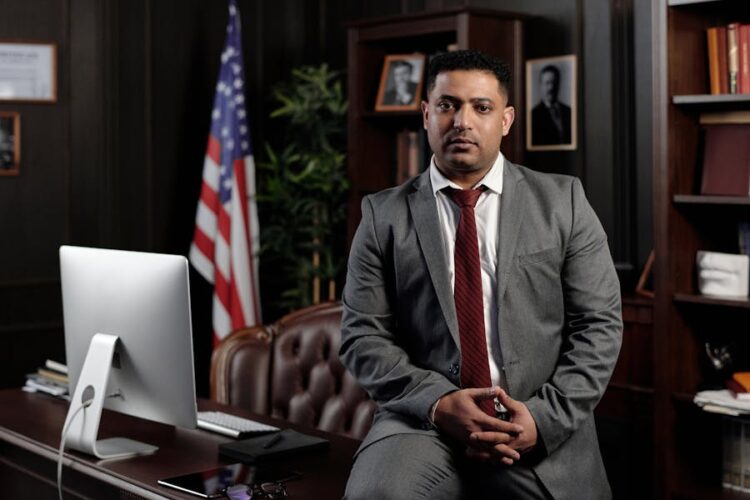Hiring a criminal defense lawyer is a big decision and one you probably didn’t expect to make. When you’re facing charges yourself or helping someone close to you, it’s easy to feel overwhelmed, rushed, or unsure of who to trust. You know you need someone experienced, but how do you figure that out from a quick consultation? And what should you even ask to tell if someone’s the right fit?
You don’t need to know all the legal terms or have it all figured out. What matters most is asking the right questions upfront, so you’re not left confused or regretting it later.
So, to help you move forward with more clarity and less stress, start by asking these eight essential questions and get a sense of whether a lawyer is truly in your corner.
How Much Experience Do You Have With Cases Like Mine?
Not all criminal defense lawyers handle the same types of cases. One may have years of experience dealing with DUI charges, while another focuses more on white-collar crimes or violent offenses. Ask directly about their background and don’t just settle for a vague “I’ve handled similar cases.” You need to ask for the specifics.
If your charges were filed in a specific state, it helps to find someone familiar with the local laws, courts, and prosecutors. For example, if you’re dealing with charges in California, it makes sense to look for the best criminal lawyer in California, someone who’s handled similar cases and knows how to work within that state’s legal system. Their specific expertise and insights can save you time, avoid missteps, and help your case move in the right direction.
What’s Your Track Record With These Types of Charges?
Once you’ve confirmed they’ve worked on similar cases, the next step is understanding how well they’ve done. Numbers matter, but context is everything. A lawyer who’s taken 20 cases to trial and won 15 might actually be more effective than someone who’s plea-bargained 100 and never seen a courtroom.
So, ask how often they get charges dismissed or reduced. Do they tend to push for a trial or resolve things early? Do they have strong relationships with local prosecutors? A good track record should show their consistency and ability to work cases to your advantage based on your goals and risks.
Will You Be the One Personally Handling My Case?
Some law firms operate like assembly lines. You meet with one lawyer, then your case gets handed off to a junior associate or paralegal. That’s not necessarily bad, but you need to know who’s doing the heavy lifting and who’ll be representing you in court.
So, ask who’ll be writing your motions, showing up in court, and taking your calls. If it’s a team effort, make sure you’re comfortable with the team. You deserve clarity from day one. If a lawyer can’t give you a straight answer or brushes you off, that’s a red flag.
How Do You Communicate With Clients?
Communication is often what makes or breaks the attorney-client relationship. Ideally, you’ll want someone who keeps you in the loop, answers your questions clearly, and makes time for updates. So, find out how they prefer to communicate (e.g., phone, email, or text) and how quickly you can expect a response.
Also, ask how often they’ll reach out proactively. Will they notify you every time something changes? Will you get updates even if there’s no big development? Facing charges can be incredibly stressful, and not knowing what’s happening only makes it worse. You’ll feel more confident if you know your lawyer won’t ghost you.
What Is Your Strategy for My Case?
You don’t need a full legal roadmap in the first meeting, but a solid defense lawyer should be able to give you a general idea of how they’d approach your case. They should listen carefully, ask follow-up questions, and offer insight into what kind of timeline, challenges, and opportunities they see.
Be wary of anyone who promises a specific result or downplays the seriousness of your charges. A trustworthy lawyer will be honest about your risks and realistic about your options. They’ll also explain how they plan to build your defense, whether it involves challenging evidence, negotiating with prosecutors, or preparing for trial.
What Are the Total Costs and What’s Included?
Money’s a big factor, and you shouldn’t feel awkward asking about it. Legal fees can vary a lot depending on the complexity of your case, the lawyer’s experience, and the amount of work involved. Some charge a flat fee, while others bill hourly. Either way, make sure you know exactly what’s covered.
Will you be paying extra for court appearances, investigators, expert witnesses, or administrative fees? Ask for a written fee agreement that spells out everything clearly. Just remember that you have the right to know what you’re getting and how much it’ll cost.
Have You Handled Cases in This Courthouse?
Knowing the local system is a big advantage. Judges, prosecutors, and even court staff all have their own rhythms and preferences. A lawyer who’s familiar with your courthouse knows how things tend to play out, how aggressive local prosecutors are, and what a particular judge might allow or shut down.
Ask how often they’ve practiced in that courthouse, and whether they know the people involved in your case. Local experience often means they can anticipate moves and tailor strategies in ways that out-of-town lawyers can’t. That insider knowledge might give you a stronger edge than you think.
What Do You Expect From Me as a Client?
This is a question people often forget to ask, but it can save you from misunderstandings later. Good lawyers have expectations, too. They may want you to stay off social media, attend every court date on time, or follow specific instructions about evidence and communication.
Some lawyers will even ask clients to keep a timeline of events or provide documentation quickly. Knowing their expectations up front helps you stay aligned and shows that you’re serious about working with them. The attorney-client relationship is a two-way street, and the stronger the partnership, the better your defense will be.
Key Takeaway
The lawyer you hire can shape how your case plays out and how supported you feel throughout it. So, don’t rush the process or settle for vague answers. Ask clear questions, pay attention to how they respond, and trust your instincts. You deserve someone who’ll take your case seriously and treat you with respect, so start there.










